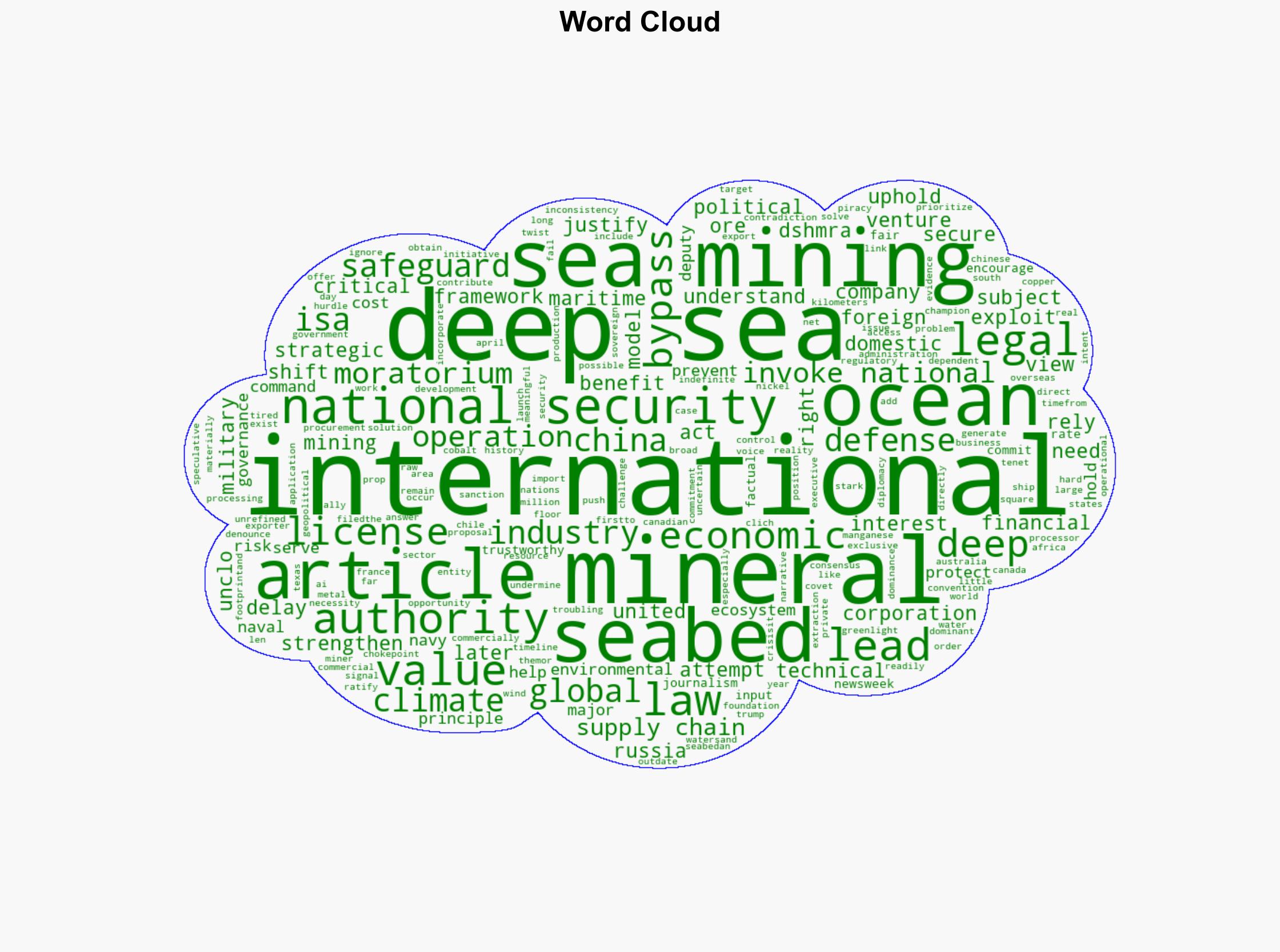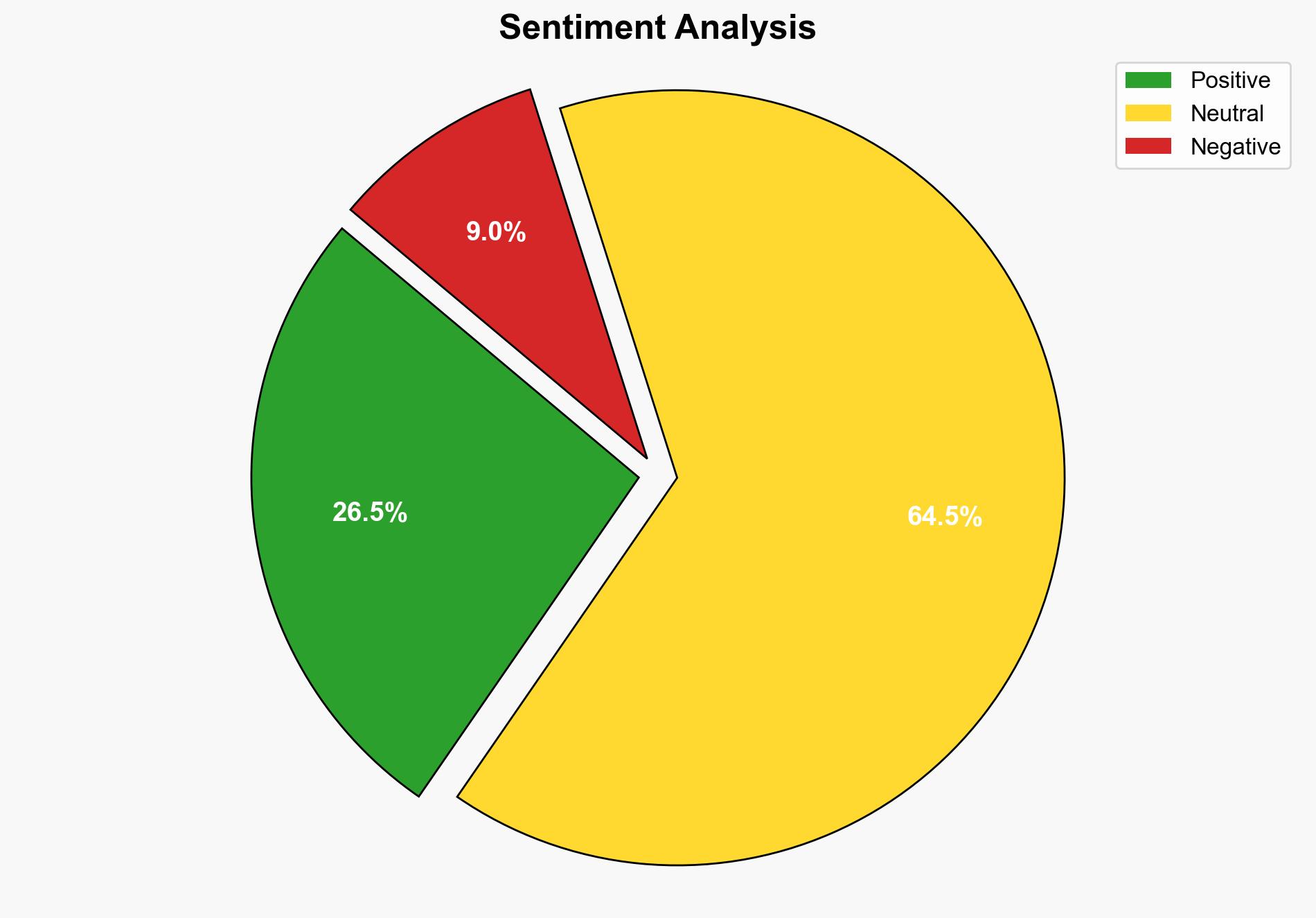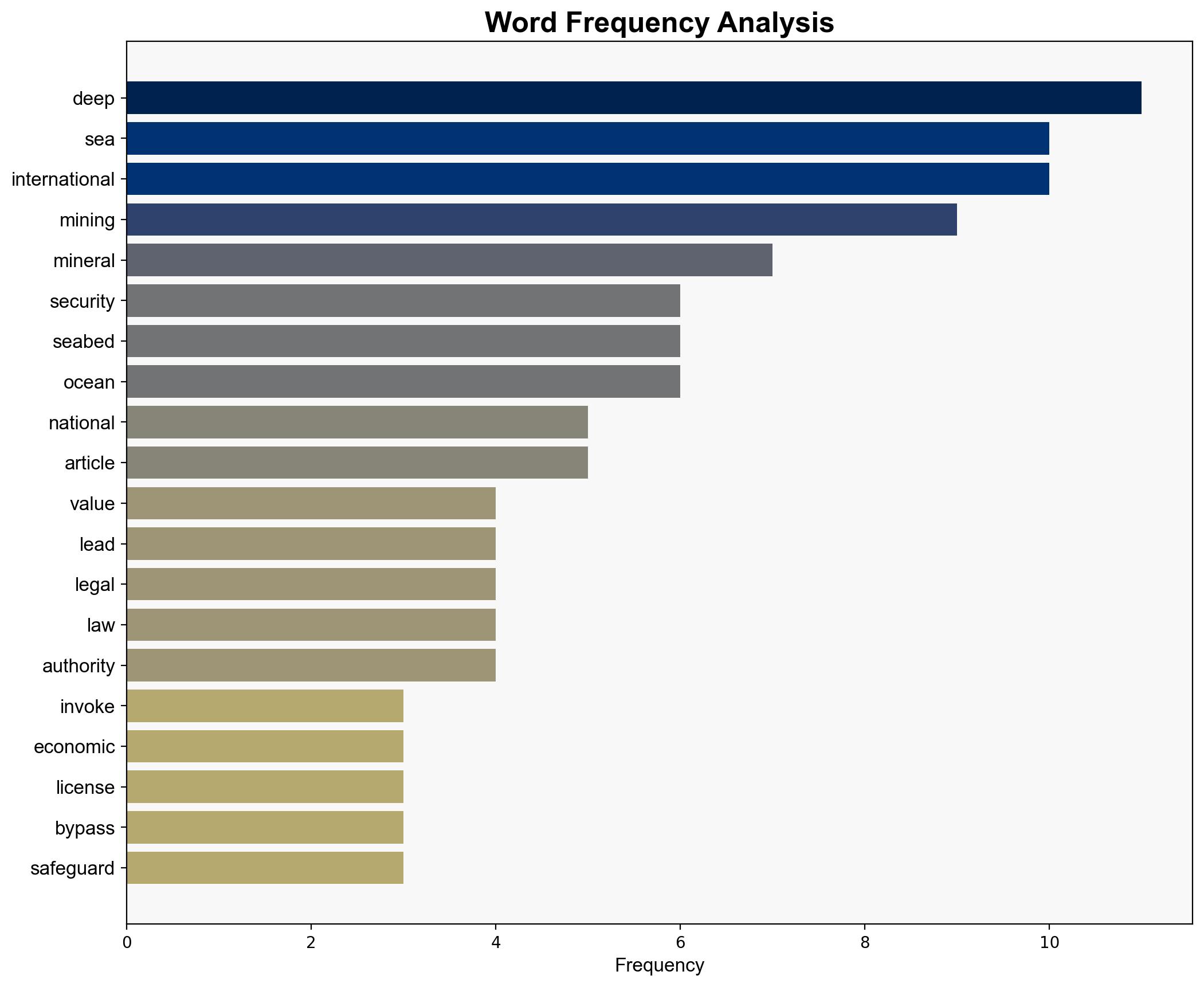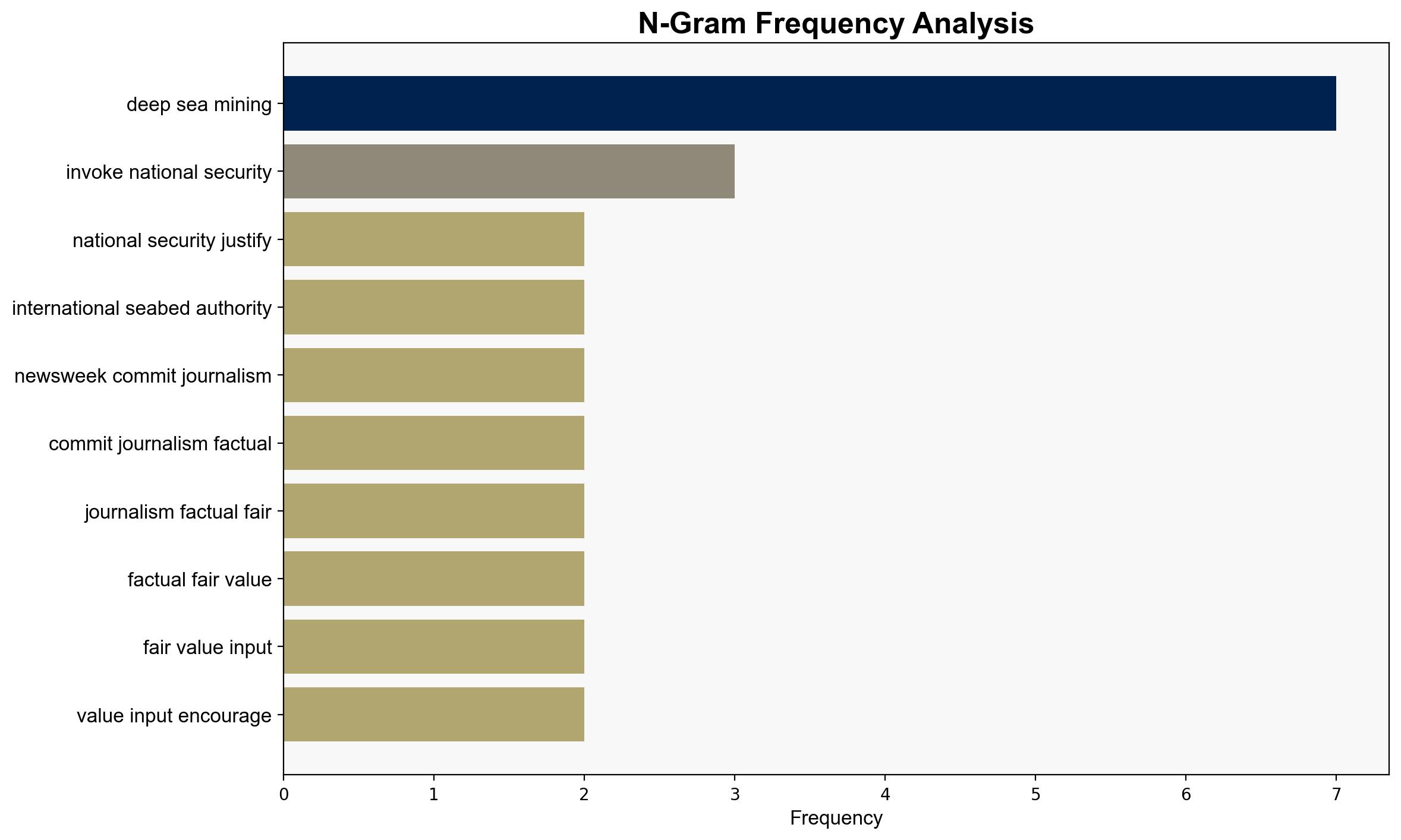Deep-Sea Mining Threatens US Security and Ocean Peace Opinion – Newsweek
Published on: 2025-08-05
Intelligence Report: Deep-Sea Mining Threatens US Security and Ocean Peace Opinion – Newsweek
1. BLUF (Bottom Line Up Front)
The analysis suggests that deep-sea mining poses significant strategic risks to US security and international maritime governance. The most supported hypothesis indicates that invoking national security to justify deep-sea mining primarily serves corporate interests rather than addressing genuine security concerns. Confidence level: Moderate. Recommended action: Advocate for a global moratorium on deep-sea mining until robust international safeguards are established.
2. Competing Hypotheses
1. **Hypothesis A**: Deep-sea mining is essential for securing critical minerals necessary for national defense and reducing dependency on Chinese processing capabilities.
2. **Hypothesis B**: The invocation of national security is a strategic maneuver by corporations to bypass international regulations and prioritize economic gains over genuine security needs.
Using ACH 2.0, Hypothesis B is better supported due to the lack of evidence that the minerals targeted by deep-sea mining are prioritized in military procurement and the speculative nature of the venture. Additionally, the bypassing of international safeguards and the potential environmental impact align more closely with corporate interests than national security imperatives.
3. Key Assumptions and Red Flags
– **Assumptions**: Hypothesis A assumes that deep-sea mining will directly enhance national security by securing critical minerals. Hypothesis B assumes that corporate interests are the primary drivers behind the push for deep-sea mining.
– **Red Flags**: The lack of clear evidence linking deep-sea mining to prioritized military needs and the speculative nature of the venture. The potential for regulatory and technical delays undermines the strategic value claimed by proponents.
– **Blind Spots**: The long-term environmental impact of deep-sea mining and its potential to disrupt international maritime law are not fully explored.
4. Implications and Strategic Risks
– **Geopolitical Risks**: Bypassing international regulations could weaken the United States’ moral authority in maritime governance and provoke geopolitical tensions, particularly with countries like China and France.
– **Economic Risks**: The speculative nature of deep-sea mining could lead to financial losses and undermine efforts to establish a stable supply chain for critical minerals.
– **Environmental Risks**: Potential environmental degradation could lead to international backlash and further complicate diplomatic relations.
5. Recommendations and Outlook
- Advocate for a global moratorium on deep-sea mining until comprehensive environmental and regulatory frameworks are established.
- Engage in multilateral discussions to strengthen international maritime law and ensure compliance with existing treaties.
- Scenario Projections:
- Best Case: Successful establishment of international safeguards leads to sustainable deep-sea mining practices.
- Worst Case: Unregulated mining results in environmental damage and geopolitical conflicts.
- Most Likely: Continued debate and delay in establishing a consensus on deep-sea mining regulations.
6. Key Individuals and Entities
– Canadian company involved in obtaining exclusive licenses for deep-sea mining.
– Trump administration, responsible for issuing an executive order related to deep-sea mining.
7. Thematic Tags
national security threats, environmental impact, international maritime law, corporate influence





